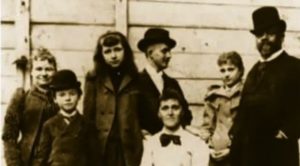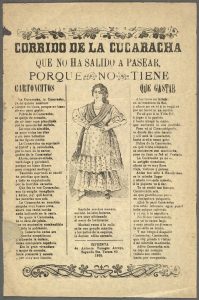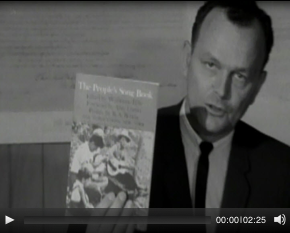Every American who went to a school dance is most likely familiar with the dance floor classic, “Cotton Eye Joe.” Everyone is always asking, where did he come from? Where did he go? But who really was Cotton Eye Joe? What is the history of the song?
This link will take you to a rendition of the folk song “Cotton Eye Joe”
“Cotton Eye Joe” has a very complicated history, rooted in the common issue of songs appropriating African American culture. The song itself began as a folk song in the American South in the 1800’s.1 The original song and lyrics were stated to be a caricature of enslaved people on Southern plantations.2 The song itself has had multiple, all racist, variations. One depicts a black man coming to town and stealing people’s wives.2 In multiple other versions he is described as a slave who is owned by the narrator of the song. One version has a morbid detail which states that Joe made a fiddle out of his dead son’s coffin.3 The word “cotton-eye” itself refers to the idea that Joe may have been drunk on moonshine, or was a highlight of the contrast between dark skin and white eyes.1
“Cotton Eye Joe” almost faded into obscurity, until 1994 when the Swedish techno group, Rednex, created a remix of the song. They reformed the lyrics to get rid of the racist elements and instead make it about a woman being entranced with and running away with Cotton Eye Joe.3 In the music video, the band members dressed up like stereotypical hillbillies, and claimed to be “rescued from an uncivilized village in Idaho and taken to Sweden to discover their passion for music.”1 After receiving backlash from Southern American audiences, the members of the group stated that they thought the redneck image was compatible with the feeling of the music–raw, energetic, simple, and party.1
The complex history of the song illustrates how music with racist themes are so intrinsically entwined with American music.
Sources:
1 – https://americansongwriter.com/the-meaning-behind-cotton-eye-joe/
2 – https://www.fcsgw.org/cotton-eyed-joe/
3 – https://www.huffpost.com/entry/cotton-eyed-joe-origins_n_55b8ffade4b0a13f9d1b1b15



